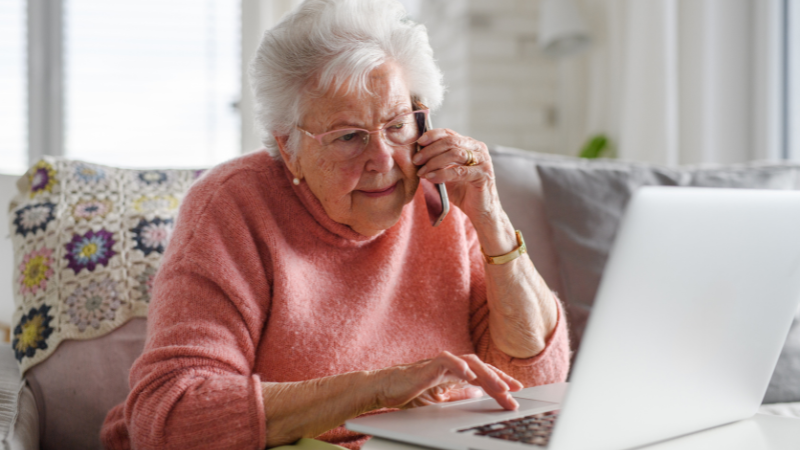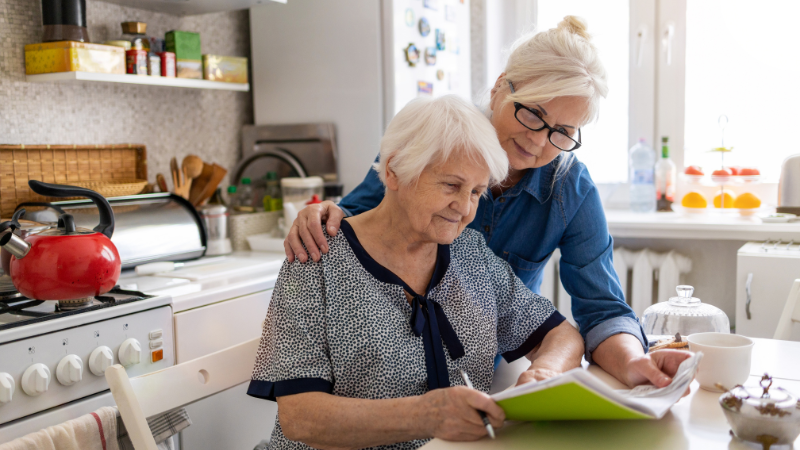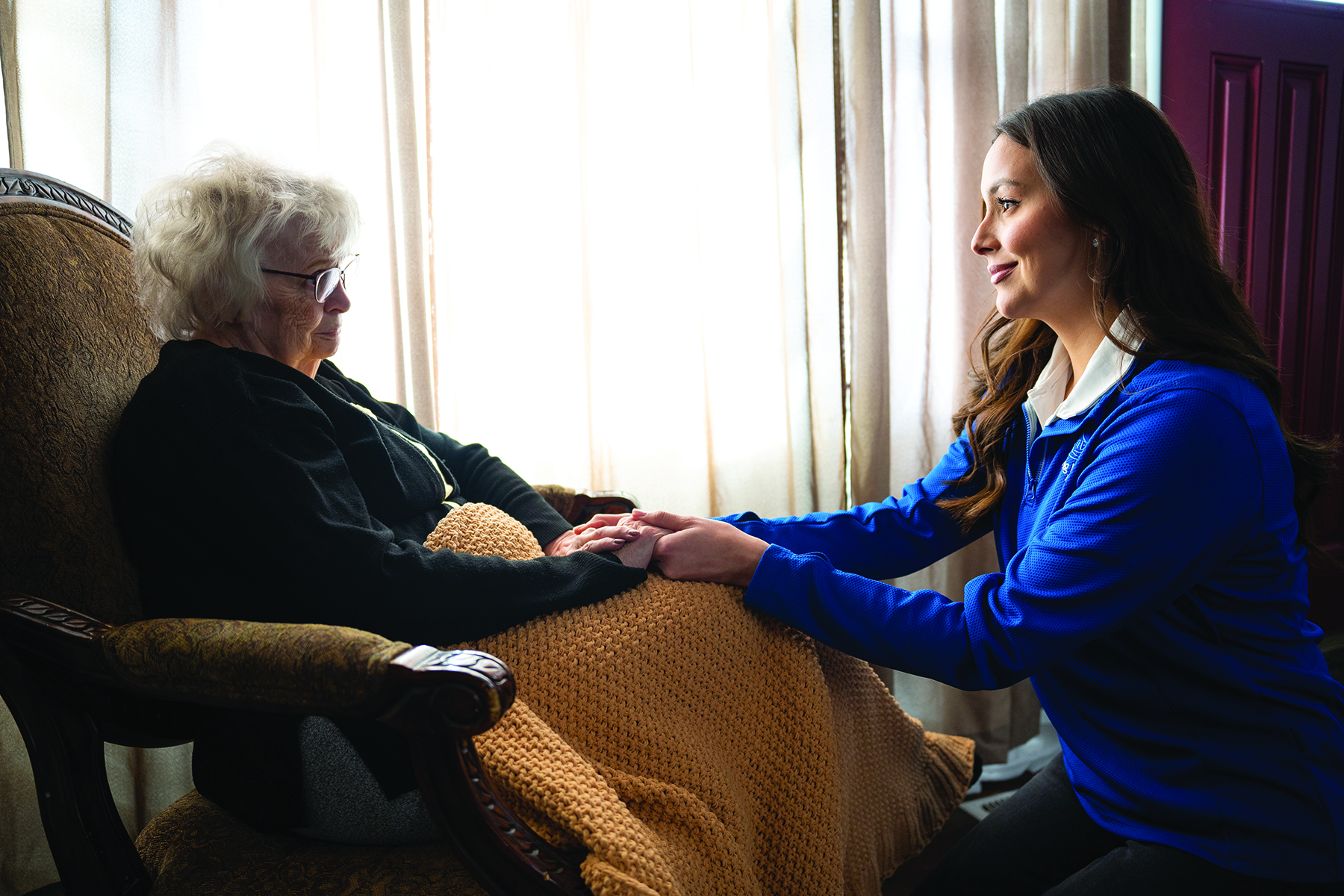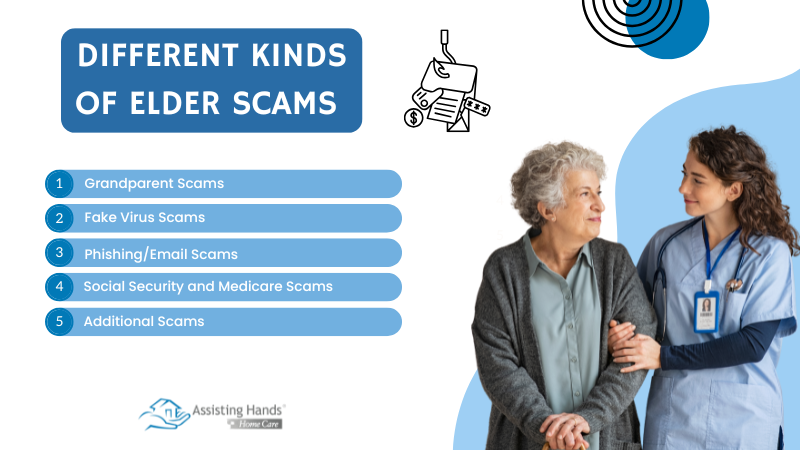

Seniors may fall prey to elder scams, from financial and computer scams to delivery scams. With technology growing at a rapid rate, the chances of becoming a victim of scams continue to grow. Your elderly loved ones become at risk for scams, as they may not understand the capabilities of new technology.
Caregivers and family members need to protect their aging loved ones so they do not fall victim to such scams. By helping them become aware of the warning signs of scams, caregivers can safeguard the financial and emotional health of the elderly.
What increases the chances of elderly exploitation?
Fraudsters frequently attempt to scam the elderly for several reasons. Many older adults are financially stable due to having had many decades to build up their savings, which they invest in homes or retirement accounts. Some seniors have amassed millions in retirement assets.
Aging people who suffer from frailty or impairment are vulnerable to falling for scams. Fraudsters may target the elderly living with dementia or other forms of cognitive decline. Seniors’ perceived or actual frailty makes them prime and easy targets for various financial scams.
What are the different kinds of elder scams?
1. Grandparent Scams
The grandparent scam is one of many common scams targeting seniors. The con artist poses as a law enforcement official and claims to represent a family member in distress. They demand money to be wired to get the grandchild out of a quandary, whether it’s overdue rent or bail.
2. Fake Virus Scam
Seniors may fall for the fake virus scam, where they download fake anti-virus software, usually in the form of a popup. Along with losing the money they use to purchase the fake virus-scanning software, the senior’s computer becomes accessible to the scammer.
3. Phishing/Email Scam
Email scams are also prevalent. Con artists send emails that appear to be from a legitimate company or organization. The unwitting senior is asked to update or verify their personal information. Once the older adult enters their details, the scammer uses them to commit fraud.
4. Social Security and Medicare Scam
Social Security and Medicare scams target the elderly, too. The fraudster claims to be a representative of the Social Security Administration and asks for money to make adjustments to the senior’s Cost of Living Adjustment. Scammers may ask for information to send seniors a new Medicare card.
5. Additional Scams
A range of other elder scams run, including fake insurance scams where deals on home, auto, and life are presented to seniors. False investment opportunities, fraudulent offers on discounted medications, and IRS scams where the senior is threatened with jail if they don’t send money right away are prevalent.
How can I protect my aging loved ones’ money?
Families and caregivers can protect their older loved ones from becoming victims of elder fraud by being aware of the abovementioned scams and others. Scammers often ask that money be sent in unusual methods, such as wire transfers, gift cards, or cryptocurrencies. Avoid these odd payment types.
Urgency is a mainstay of cons. Resist giving in to urgent demands or those requiring immediate action. Legitimate companies and organizations do not spew fear or urgency. Take time to think about what is being asked and evaluate its legitimacy.

Seniors should be extremely cautious about giving out their personal information. Once con artists get ahold of an older adult’s Social Security number, credit card information, or passwords, they can use them to commit fraud or sell the details in the black market to other fraudsters.
Impersonations are on the rise due to AI’s ability to mimic voices. Urge the senior to be wary of individuals calling and claiming to be family or representatives of the government. Medicare, for instance, usually makes contact with seniors about plan changes or billing through mailings.
What should caregivers do if an older loved one is being scammed?
Seniors who have been scammed may feel too embarrassed to reveal the incident to others. But falling for fraud is nothing to be ashamed of. It can happen to anyone of any age. Older adults who report the crime as soon as possible minimize the consequences.
Report fraud to the National Elder Fraud Hotline, managed by the US Department of Justice: 833-FRAUD-11 or 833-372-8311. Or report an elder scam to the US Federal Trade Commission via its online reporting portal. Consider reporting to the local police department.
If money has been sent to a scammer, the elderly individual should contact the financial institution and report the fraud. Take steps to secure the account. For example, seniors might enable two-factor authentication on digital accounts to prevent them from being compromised further.
When computer fraud occurs, disconnect from the network; this step is essential if the scammer left a remote access trojan that allows them to reconnect to the system. Run anti-virus software from a reputable source, such as Malwarebytes, to clean the computer and reset passwords. Elderly individuals who live with some form of cognitive decline, whether Alzheimer’s disease or other type of dementia, can be especially vulnerable to elder scams. Protect your aging loved one’s well-being by securing a professional caregiver from Assisting Hands Home Care.
Compassionate Caregivers at Assisting Hands in Sarasota, FL

At Assisting Hands Home Care in Sarasota, we provide compassionate elder home care to seniors. In situations where your elderly loved one has a progressive condition, such as dementia, our caregivers are tasked with duties to help manage and relieve symptoms. We keep their minds active and stimulate their memory with activities, like games, puzzles, and conversations.
Safety is promoted at home by removing hazards, like clutter. We prevent wandering by supervising the seniors and securing the home. An older adult with dementia is never left alone at home. Caregivers also establish a routine to prevent dementia patients from feeling confused or anxious. Our caregivers are ideal companions who engage seniors socially to prevent isolation and loneliness. We provide transportation to doctors’ appointments, shop for groceries, and prepare healthy meals. We give timely medication reminders and assist with personal hygiene tasks, like bathing, toileting, and dressing.
When your aging loved one would benefit from quality dementia and Alzheimer’s care, choose Assisting Hands Home Care in Sarasota County, FL as countless satisfied families do. We are privileged to support and protect seniors and raise their quality of life. Schedule a free in-home consult today or give us a call at (813) 868-6782 to learn more.

